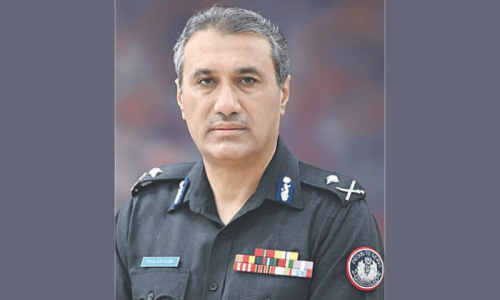KARACHI: Sindh Education Minister Sardar Ali Shah on Tuesday informed Chief Minister (CM) Murad Ali Shah that the insufficient number of middle and secondary schools in the province was the major reason behind the 54 per cent drop-out rate for children at the post-primary level.
He told a meeting of the school education department, chaired by the CM, that over 4.1 million children were out of school after primary school education as there were only 4,730 middle/elementary and secondary schools in the province.
According to a CM House spokesman, the education minister told the meeting that there were 36,234 primary schools and 4,730 middle and high schools, which resulted in a 54pc drop-out rate for children at the post-primary level.
CM Shah approved a policy to gradually upgrade all primary schools to post-primary level and develop a connection with cluster schools to prevent the drop-out ratio from increasing as over four million children are out of schools in Sindh.
CM approves policy for upgrading all govt primary schools to post-primary level
He referred to a report of the Pakistan Institute of Education (PIE) which stated that there were 26.2m children out of school in the country while Sindh’s share was stated to be 7.63m children.
Contradicting the PIE figures, the education minister quoted the latest figures from the federal education ministry that stated that there were 4.1m children out of school in the province.
He informed the meeting that there were a total of 14,208,257 children in the province, out of which 10, 204, 647 were receiving education in public and private schools, madressahs and other institutions while 4.1m were out of school.
Sardar Shah stated that 4.5m children attended government schools, 3.9m attended private ones, and 840,000 children attended the institutions of the Sindh Education Foundation. “Additionally, 500,000 children attended madressahs, and 500,000 attended federal/Pak Army/Navy schools,” he added.
To tackle this issue, the CM approved a policy to gradually upgrade all primary schools to post-primary schools in the Annual Development Plan (ADPs).
Additionally, the government will work on developing linkages with cluster schools to retain children and prevent their dropping out.
The education minister highlighted the importance of providing non-formal education opportunities to children between the ages of nine and 16 years.
However, he noted that the current resources were insufficient to meet the demand for non-formal education.
The CM said the provincial government was in the process of creating an authority of non-formal education to better address the educational needs of those children.
He said that 19,806 schools were damaged, 7,503 of them fully and 12,303 partially. He said that 5,295 units had been included in the construction programme, for which donor agencies were also assisting.
Mr Shah stated that he would request the prime minister for financial support for three priority areas, which were upgrade of schools from primary to elementary level, rehabilitation of the remaining flood-affected schools, and establishment of more non-formal literacy centers in all districts.
The meeting was also attended by Principal Secretary to Chief Minister Agha Wasif and School Education Secretary Zahid Abbasi.
Meanwhile, in his meeting with European Union Ambassador Dr Riina Kionka, the CM discussed two new projects aimed at helping those affected by the flood.
One project involves the reconstruction of school buildings damaged by the flood, while the other aims at providing solar panels to the people living off-grid.
The provision of solar panels will be done in two phases, with the first phase targeting those who are living off-grid and the second phase targeting others who are in need.
The EU ambassador assured the chief minister that she would discuss the matter with the European authorities to help resolve the issue. She also expressed her support for the solar panel project and assured the CM that it would be supported.
Published in Dawn, May 1st, 2024













































Dear visitor, the comments section is undergoing an overhaul and will return soon.